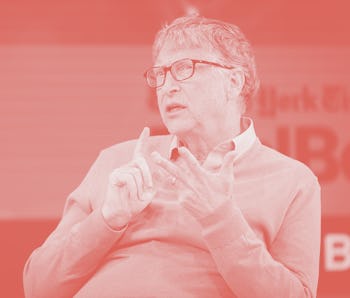Coronavirus
The Bill and Melinda Gates Foundation is working on home-testing kits for the coronavirus
If successful, the foundation could ease the burden on health officials and limit the physical transmission of the respiratory disease.

As the coronavirus spreads around the globe, researchers in the U.S. are trying to come up with solutions that could at least contain its transmission. A vaccine for the disease is still a year away by most estimates, but to limit the spread in the interim, the Bill and Melinda Gates Foundation is working on home-testing kits for the coronavirus, according to a report by The Seattle Times.
How would it work? — People who think they have the respiratory disease will swab their noses and send the samples back to the foundation's labs for thorough testing. According to The Seattle Times, the results will be available to the individual within one or two days, which is a fairly quick turnaround.
If the patient tests positive, the sample will then be sent to local health officials in their town or county so that these medical experts can effectively understand the trajectory of COVID-19, including whether the patient has transmitted it to anyone else in their area.
House-to-house case identification would help tremendously — The foundation's leader of coronavirus response, Scott Dowell, told The Seattle Times that the purpose of these home-testing kits is to lessen the burden on health officials. With 802 positive cases of COVID-19 in the U.S. at time of writing, it's become painfully evident that the country's approach to testing, verifying, and containing the outbreak has been slow and inadequate, much to the frustration of the public.
Although it's unclear when these kits will reach people, the foundation — which has donated $100 million toward COVID-19 research and containment — could help ease the pressure healthcare facilities are facing in the wake of the deadly outbreak in the country. "Although there’s a lot to be worked out," Dowell told The Seattle Times, "this has enormous potential to turn the tide of the epidemic."
Anything that helps limit the spread of the coronavirus is a win in our books, especially when the government's official response remains vague. "One of the most important things from our perspective, having watched and worked on this in other parts of the world," Dowell added, "is the identification of people who are positive for the virus, so they can be safely isolated and cared for, and the identification of their contacts, who can then be quarantined."